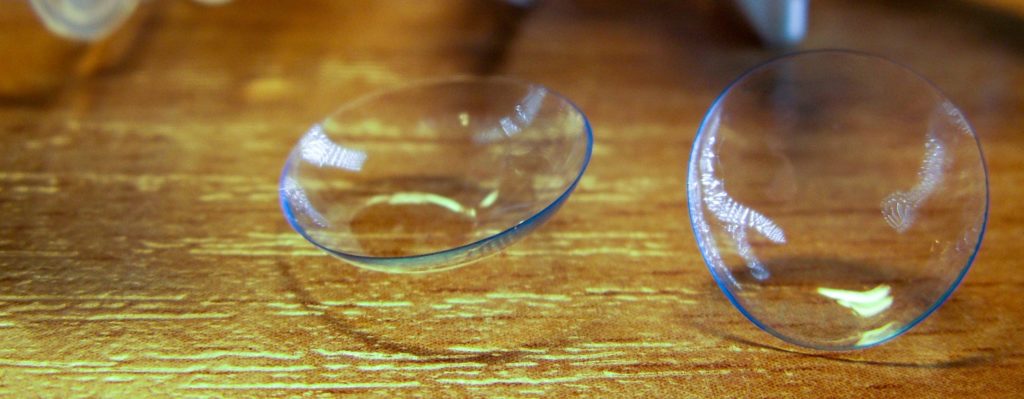When it comes to caring for soft contact lenses, there are various options and products offered in everyday drugstores. Although the options can be overwhelming, it is important to select the best product to ensure proper eye health.
With the advancements of single bottle solutions and short-term disposable contacts, ensuring eye health has become even simpler for the common user. Most importantly, you must consult with your eye doctor before making any changes to your contact lens cleaning routine to ensure you are using the correct products.
There are four essential steps for contact care: wash, clean, rinse and disinfect. Before making contact with your lenses, you should always wash hands properly so that everyday germs do not transfer on to the lens. After washing your hands, dry them off using a lint-free towel to prevent lint transfer onto the lens.
After both hands are clean and dried properly, remove one contact lens and apply the cleaning solution to thoroughly clean the lens from everyday germ build-up. Afterwards, rinse the lens to eliminate residue; it is extremely important to rinse the lens before placing them back into their case to ensure all residue has been removed. Once the contact is rinsed and in its clean case, apply fresh solution into the individual holder; do not add fresh solution to the old solution. Then finish by completing the same steps for the other contact lens to ensure proper cleaning and eye health.
Besides following the four essential steps for cleaning one’s lenses, there are also other products to help comfort eye dryness, eye sensitivity, and protein build-up. The human eye naturally deposits protein and the amount deposited on a lens varies upon the type of the lens used. The initial cleaning does a good job eliminating some of this protein, but if you are using long term wear contacts, more protein will remain on the lens and can create discomfort for the wearer. To treat this discomfort, one should use protein remover to help remove the remaining protein or switch to shorter term contact lenses such as weekly or daily contacts.
Don’t forget – speak with your eyecare professional about your contacts before making any changes to your contact treatment regiment.


